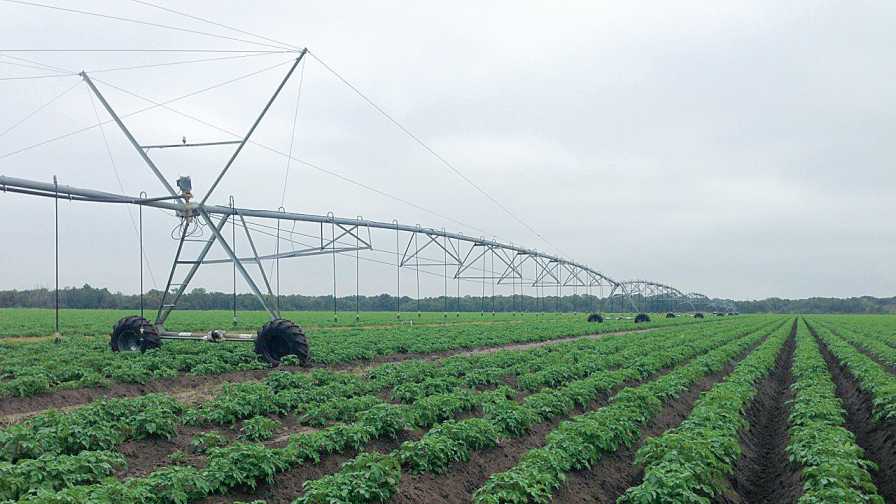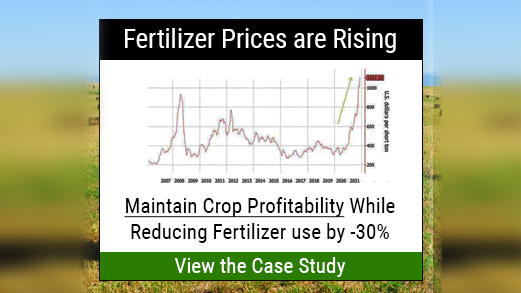Florida Farmers Are Good For The Environment

Low-volume center pivot irrigation saves more than one million gallons of water daily on Jones Potato Farm in Parrish, FL, one of the 2016 winners of the Commissioner’s Agricultural-Environmental Leadership Award.
Photo courtesy of Jones Potato Farm
Florida’s farmers and ranchers not only fuel our people and economy, they have proven themselves as responsible and innovative stewards of our land and world-renowned natural resources. Today, Florida farms and ranches produce nearly 300 different agricultural commodities on more than 9 million acres of land. At the same time, agricultural operations preserve natural habitats and protect our natural resources from development so future generations can enjoy their many benefits.
Each year, the Florida Department of Agriculture and Consumer Services recognizes Florida farmers and ranchers who demonstrate a sustained commitment to conserving Florida’s natural resources and improving our environment. The Agricultural-Environmental Leadership Award goes to three Florida operations that stand out for their efforts.
Jones Potato Farm in Manatee County has fully incorporated precision ag into the operation to produce more with less. The farm uses GPS-guided variable-rate fertilizer application and reduced fertilizer use by around 30%. In addition, the farm uses a low-volume irrigation system and reduced water use by around 70%, conserving more than one million gallons of water per day.
Alliance Dairies in Trenton, the largest free-stall dairy in one location in the state, is pushing the boundaries of sustainable agriculture. Alliance Dairies recycles nearly all the water used on the dairy, recycles 80% of the sand used for bedding, uses and recycles effluent as fertilizer on forage, and composts manure for bedding, to fertilize grass and to dry irrigation corners. In addition, their cows eat about 33,000 pounds of by-products such as canola meal, soybean meal and hulls, brewers grain and citrus pulp. Alliance Dairies is also the first dairy farm in the Southeast to use a methane digester to convert cow manure into electricity.
In business for more than 30 years, Cherry Lake Tree Farm in Groveland has harnessed soil moisture sensor and evapotranspiration-based irrigation for the benefit of their operation and Florida’s natural resources. Over the past five years, the farm has reduced its water consumption by 15%, while simultaneously increasing production by 15%. Nursery trees and plants with similar irrigation and nutrient needs are strategically grouped together to further reduce waste. With coming irrigation system improvements, the farm is projecting to save an additional 70 to 80 million gallons of water per year.
Whether it’s producing milk, growing potatoes or growing trees and nursery plants, these winners have all implemented best management practices that help them reduce runoff and conserve water, while producing high-quality agricultural products. All three recipients of this year’s Agricultural-Environmental Leadership Awards are proof of agriculture’s longstanding commitment to conserving Florida’s precious natural resources.
I’m proud to recognize these Florida farms for implementing innovative, business-savvy farming practices to conserve and protect our state’s diverse, world-renowned and economically important natural resources and environment.










